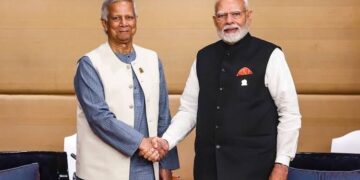Due to the ongoing war between Israel and Hamas, millions of women have had to take shelter in camps, but their life in these camps is no less than hell. Excrement is flowing in the open in front of the camps.
These women, living amidst the danger of diseases, do not have adequate resources to deal with the days of menstruation. It is difficult to find even a curtained corner to change clothes.
In the camps, women have to struggle daily to live with dignity amidst the crowd of people.
Women have to live in tents with their extended family members (including men) and strangers live in tents just a few steps away. In such a situation, they always have to be conscious about their attire and clothes.
Since menstrual products are not available, they use bedsheets or old clothes as pads. Apart from this, makeshift toilets have been made by simply digging a pit in the sand and hanging sheets around it.
Alaa Hamami always wears her black scarf which she wears while offering namaz. Hamami’s prayer scarf is also torn.
She usually only wore it during daily prayers, but with so many men around, she now wears it even while sleeping out of fear that she would have to flee immediately if an Israeli attack occurred.
“We have to wear prayer clothes everywhere, even when we go to the market,” said Hamami, a mother of three. Now there is no dignity left.
Israel’s 14-month-long offensive in Gaza has left more than 90 percent of the 2.3 million Palestinians homeless. Millions of them are now living in filthy camps of tents close to each other in large areas.
Sewage flows into the streets and food and water are difficult to obtain. The winter season is setting in but families are often forced to wear the same clothes for several weeks because they were unable to bring the clothes and some other essential items with them during displacement.
Everyone living in the camps is in search of food, clean water and wood for fuel every day. Women constantly feel unsafe.
Gaza’s society has always been conservative. Most women wear hijab in the presence of men who are not their family members. Women’s health issues – pregnancy, menstruation and contraception – are not generally discussed in public.
“Earlier we at least had a roof,” says Hamami. There is not even a roof here. There is no privacy for women.
Wafa Nasrallah, a mother of two children living in Gaza, says that due to living in camps, even simple needs including period pads are not being met.
The UN says more than 690,000 women and girls in Gaza need menstrual hygiene products as well as clean water and toilets.
Doa Helis, a mother of three children living in the camp, said that she has torn and used her old clothes to make pads during menstruation. “Wherever we find cloth, we tear it and use it,” he said. “A pack of pads costs 45 shekels (US$12) and the whole tent doesn’t cost even five shekels.” “
Anera, a rights group active in Gaza, says some women use contraceptive pills to stop their periods. Their menstrual cycles have been disrupted due to the stress of repeated displacement.
Amal Seyam, director of the Center for Women’s Affairs in Gaza, said these appalling conditions pose a real threat to women’s health.
He said that some women did not change their clothes for 40 days. He said that due to this and the use of cloth as pads, women will definitely have to face skin diseases, diseases related to reproductive health and psychological problems. She said that women always have to pay the heaviest price of humanitarian disasters like war.
“Women have been deprived of everything,” Helis said. They have neither clothes nor toilets. She is completely mentally broken.
“At first, I had a wardrobe that had everything I wanted,” Hamami said. We used to go for daily walks, attend wedding functions, go to parks, malls, buy things of our choice but this war devastated women, took away everything from them.”





